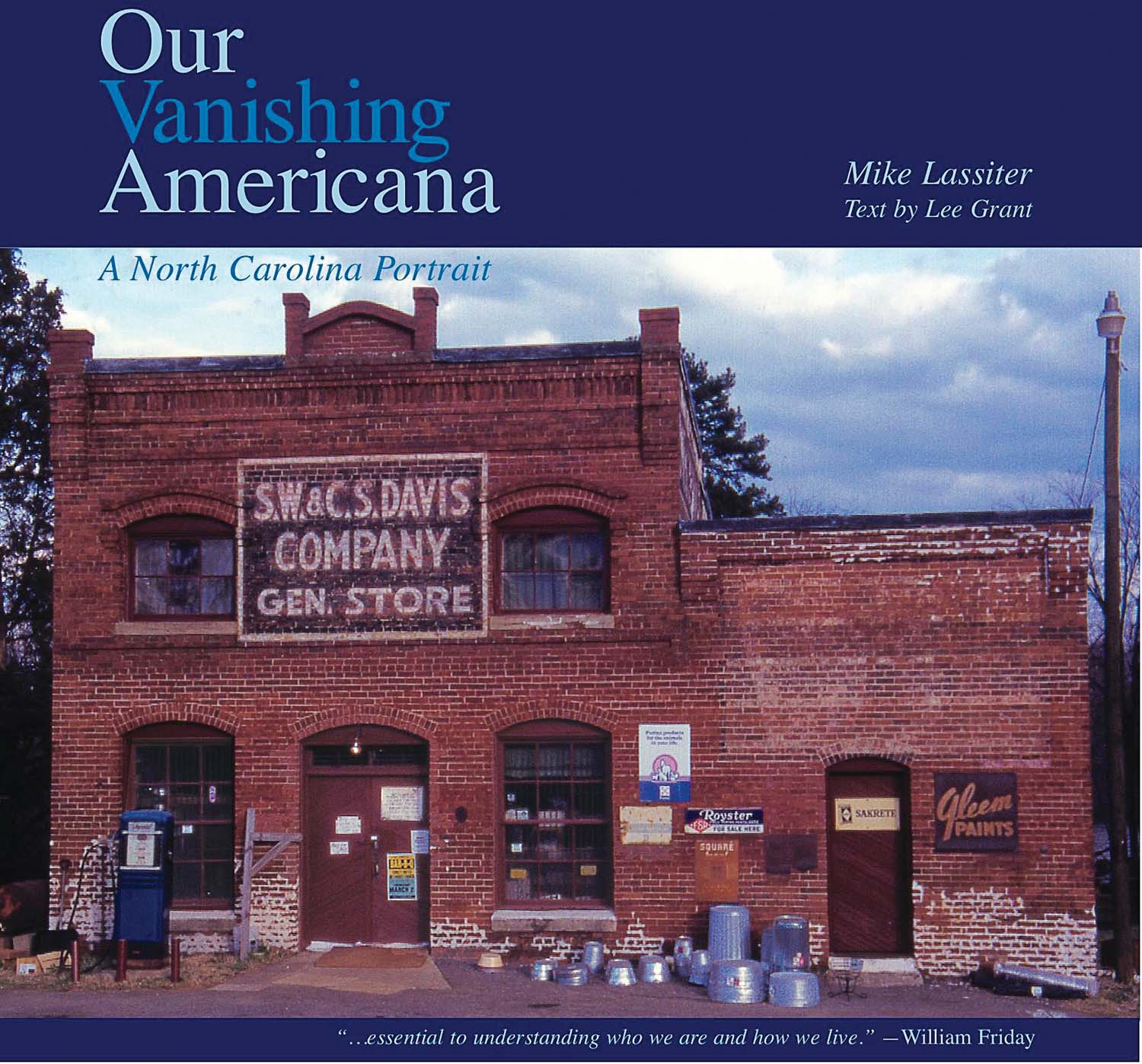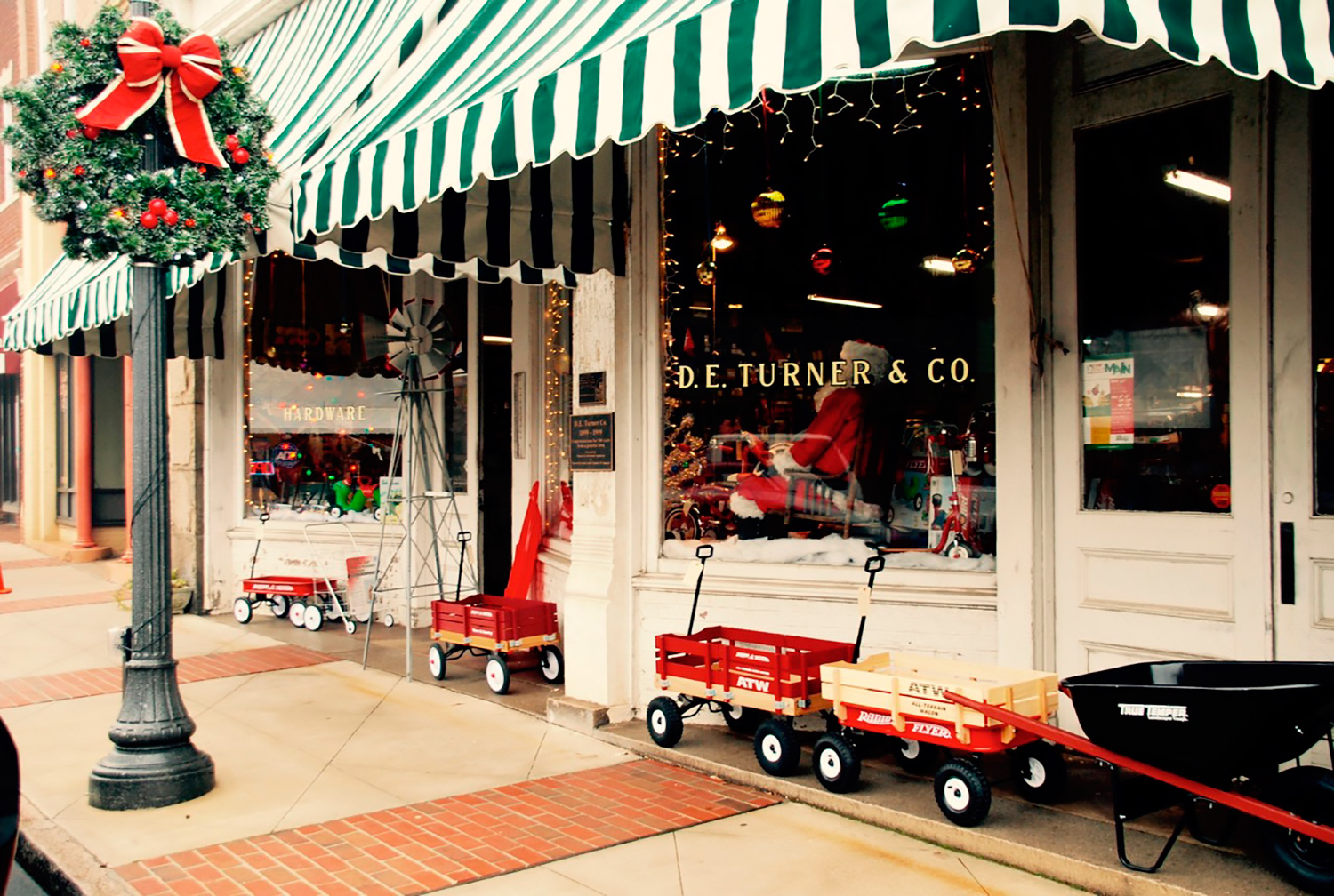
Mike Lassiter’s book about fading sites of statewide Americana turned into a movie and ongoing documentation via social media and other outlets.
Growing up in Statesville, where he still practices law, Michael Lassiter loved going to the Saturday movie matinee at the turn-of-the-century Playhouse Theatre on East Broad Street.
“I saw Song of the South there,” recalls Lassiter. Also Blazing Saddles, King Kong, and “many, many Disney movies.” The theater’s destruction in 1983, to make way for a glass-sheathed bank building, stirred something in Lassiter.
After he saw too much of the same dispiriting trajectory, the lawyer picked up a camera. Our Vanishing Americana: A North Carolina Portrait came out a decade ago, with text by Lee Grant. The tenth anniversary of the book’s publication will bring Lassiter to Saluda’s Historic Depot this month with Scott Galloway, a Charlotte-based filmmaker who adapted Lassiter’s book into a UNC-TV Emmy-nominated documentary of the same name, released in 2009.
Our Vanishing Americana was rooted in Lassiter’s love of photography and his desire to capture some of the threatened places that were personally important to him. “Initially I thought I might just compile an interesting photo album,” he recalls, “but as I continued to travel across the state and meet so many fascinating people, I realized it was something I wanted to share with others.” Six years and 30,000 miles later, Lassiter had visited all of North Carolina’s 100 counties, capturing the stories of scores of deeply embedded North Carolinians, and, by extension, the tenuous survival of community history and culture. From D.E. Turner & Co. Hardware in Mooresville to O.O. Rufty General Store in Salisbury and Chapel Hill’s Varsity Theatre — not to mention Saluda’s entire downtown area, listed on the National Register of Historic Places and including Thompson’s Store, established in 1890 — Lassiter’s book and film have heightened awareness of historic preservation efforts.
“People have told me they use the book to map out their own journey across North Carolina,” says Lassiter. Kenneth Wood, head proprietor at Graham Barber Shop in Alamance County, was 97 when Lassiter filmed him for the Americana documentary, 100 when he retired from the hair-cutting business, and 101 when he died. After a couple months of renovation, the old-time barber shop was reopened to considerable media attention.
But despite such awareness and a cultural move toward preservation, development continues to threaten historic sites. “It takes energy to mobilize an effort to preserve,” he explains. “And ultimately it takes money to overcome what may be a more economical and lucrative alternative for the site.” Besides the movie-theater-turned-financial-institution in Statesville — ironically, it ended up vacated after a bank merger — two corner drugstores and a century-old hardware store on the same street were sacrificed to commercial development.
“I would like to think that wouldn’t happen today,” Lassiter says. “I do believe towns have made a more concerted effort to preserve historical sites. However, all but the most iconic places continue to vanish as the next generation comes along less inclined to keep the family business going.”
Michael Lassiter and Scott Galloway will appear at Saluda’s Historic Depot (32 W. Main Street) on Friday, July 21, at 7pm. For more information, visit saludahistoricdepot.com/events. See “Our Vanishing Americana” on Facebook for updates on the continuing project.

